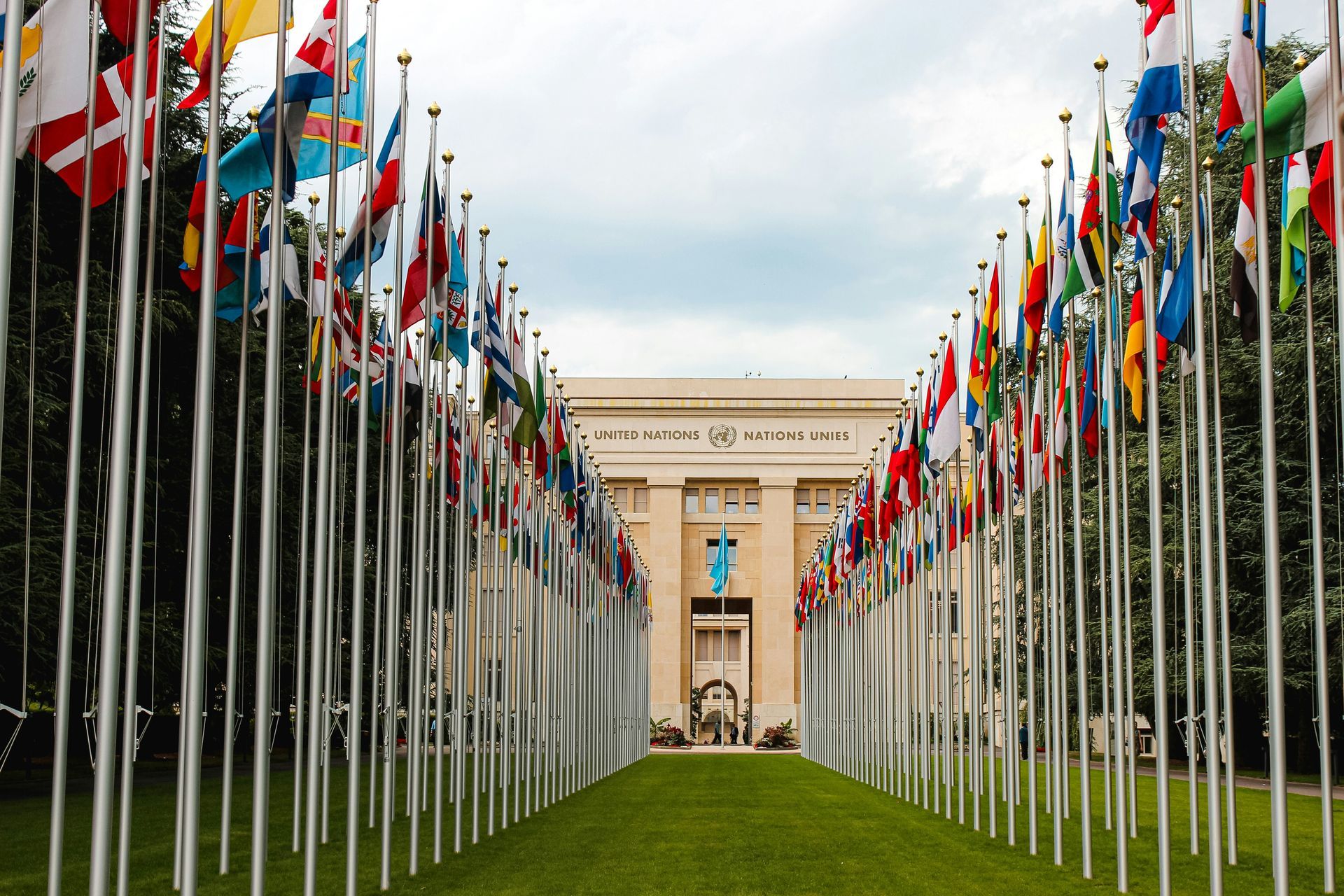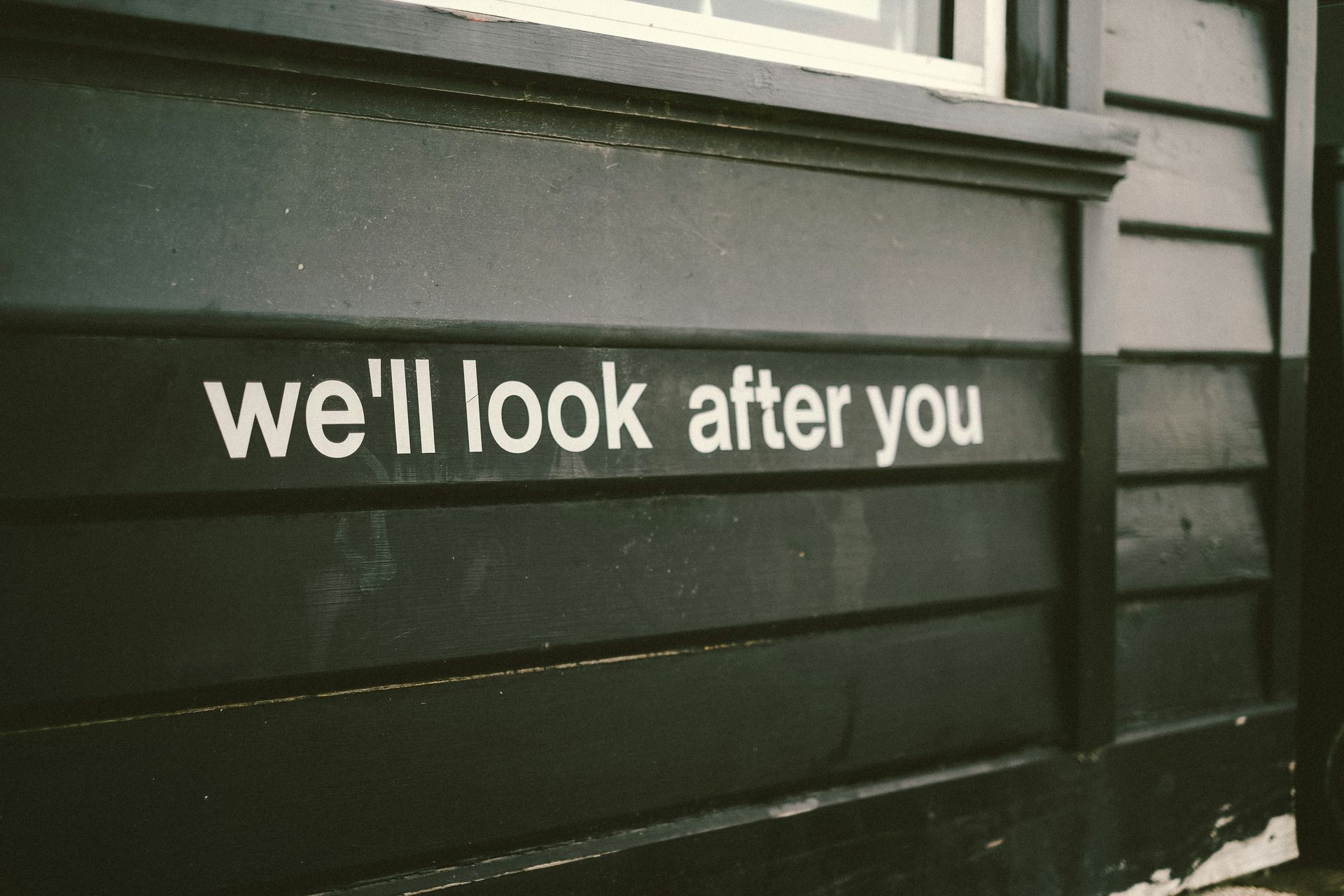As A Government Minister Do You Know How You're Perceived by the Public?
(Some Aren't As Self-Aware As They'd Like to Think They Are.)
What Degree of Control Do You Have Over It & Should You Care, Anyway?

Some time ago, I wrote an article that received wide readership around the halls of the Beehive. The article investigated the key character and communication traits shared both by successful corporate leaders and successful long-haul politicians.
I had promised a follow-up article. It's been a while. But here it is. I hope you will find that it was well worth waiting for.
In fact, what I've decided is that in this "Part Two" article, I'm going to look at shortcomings that are common and obvious in the case of many Ministers and similar political authority figures. I'll also offer my "suggestions for improvement", as a seasoned communications, marketing and business development professional . . . who also happens to have a media background.
And, in doing so, I'll be my usual frank and unrestrained self. No apologies for that. That's where you'll find your best value.
Some might consider themselves now well past the need of the advice in this article. But we're still in the longtail wake of the "Covid" era which has instilled a far greater distrust of politicians and Government in general, than has ever been the case in any times past. I don't need to tell that to this readership, of course. You're painfully aware. So the article is, in that sense, as timely as it's ever been . . . at least as a self-assessment tool for those humble enough to ponder the points herein.
The key question is: How does a political leader change what has been a stock standard, traditional modus operandi for as far back as we've had politicians?
Let's take a look at some entrenched communications modus operandi to gain some useful insights, and to investigate the potential for improvement. Yes, and some uncomfortable examples from around the 'Hive.
Transparency & Authenticity . . . Or Lack Thereof
If a politician wants to up the ante in terms of being viewed with respect and seen as trustworthy, then the first issues to address are any that are compromising his or her aura of transparency and authenticity Let's look into them:
Reliance on Overly Scripted Media Presentations (and Other Public Communications) and Rehearsed Responses:
At the heart of this (other than the old "lack of time" chestnut) is - whether it shows or not - fear.
Fear that you'll appear unprepared, insufficiently knowledgeable on the topic at hand, not quick enough off the mark or slow-thinking in general, or that you'll in some way screw up, whether by wandering off script or going blank . . . or that you'll get tangled and twisted in delivering or discussing the information being tabled or the debate being engaged in.
But the price you pay for allowing yourself to be dictated to by that fear, is that you compromise the two essential ingredients of respect and trust: Vulnerability and Authenticity.
Unabashed vulnerability signals confidence. Not faked confidence or bombast. Genuine confidence borne of authenticity of character.
I'm not suggesting for one moment that you don't take all the assistance and maximise all the resources you have at hand to ensure you are fully prepared. But I AM suggesting - highly recommending, in fact - dropping any tendency to see a more relaxed and transparent modus operandi as some sort of highly dangerous proposition.
Think of it this way: If you make a mistake, or are caught sideways, during a media exchange or other event in which you're under the spotlight, you'll likely make an even worse hash of things if you internally freak out because you're forced off-script when you'd been simply relying on prayers that you wouldn't be.
Deer in the headlights stuff. Not a good look. Might as well practice the natural look now rather than have your first-time chop at it while you're the focus of said spotlight.
And then there's likeability:
It's hard to exude an air of natural confidence and put your audience at ease, if your speeches, presentations, and answers to questions sound canned, lack spontaneity, and smack of your having to have every word you speak pre-crafted in fine detail by a fleet of media room staff and comm's advisors. But that's what will happen and how you'll come across generally, if you insist on sticking rigidly to prepared statements, avoiding improvisation or unscripted moments.
The goal is NOT to eliminate preparation, but rather, to shift the focus from scripted delivery to substantive understanding (and yes, that takes work) and responsive communication (and yes, that takes courage and a willingness to be vulnerable).
One further suggestion:
If it's within your (reasonable) power and it's practical, try to organise whatever interviews and events you think would benefit from it, to take place in an informal setting, or the least formal of the available options. That helps to "relax" the environment somewhat.
Minister of Police vs Jack Tame
When I refer to scripted communications (and eliminating or reducing your reliance on them), by the way, I'm including the "have-your-three-key-talking-paints-and-stick-to-them-no-matter-what; own-the-narrative etc" old, stale, white-shoe-brigade admonitions that have been around since I first entered PR, decades ago, as a sprout.
And goodness knows how old that formula already was even then.
What follows is a regrettable example of what happens when you "media train" a politician in these tired, transparent-in-all-the-wrong-ways, "principles" of media communications:
Early in the term of the current government, I watched an in-studio interview between Jack Tame and the Minister of Police, Mark Mitchell.
The Minister had obviously recently received his puppy training in handling media interviews . . . or came across that way. Very much not ready to have his training wheels removed.
The near-miss confrontation that that interview was, had started as early as 3.35 minutes in, when Tame began trying to ask Mitchell some hard-nosed but perfectly journalistically good and acceptable questions, with Mitchell appearing to feel he was under no obligation to actually answer any specific question . . . making it clear he would answer according to the question he preferred Tame had asked.
In his defence (if there were to be any), that's precisely the "formula" standard media trainers and PR consultants peddle. As you can see, it often doesn't work too well in practice. Especially when the trainee is lacking in emotional intelligence and communications finesse to start with.
Mitchell proceeded to talk directly (and almost aggressively) over top of Tame who, unbelievably for an interviewer like himself, let him get away with it for a full five minutes, restricting himself to (unsuccessfully) interjecting only a few times to point out that he (Tame) would like the Minister to answer his actual question.
But at 8.35 minutes (take a look), Tame's patience had justifiably run thin, and he'd waited long enough (a) for any form of direct answers to any of his questions, and (b) to wrestle back control of the interview from a gabbing, steamrolling, talking-point-hugging Minister.
"Yes, I KNOW Minister, I know you've got your talking points but you haven't answered any of my questions," Tame finally let fly to a seemingly still-uncomprehending Mitchell.
If Your Media Trainers Can't Advise Better Than That, FIRE THEM
Look, New Zealand Parliamentarians, if this is the sort of hack-flack advice you're getting, FIRE YOUR MEDIA TRAINERS.
As I've said, authenticity, responsiveness and direct answers are now the expectation of audiences across the board. Even the TV-watching and radio-listening normies want a more believable viewing and listening experience.
'Oh, Shit' Media (or Other Public) Moments
In the event of any really big "oh, shit" media moments or black-outs, here's a valuable strategy, and it's not some cunning "tip" or "trick", either. It's good solid, universally workable advice:
(In the case of a question requiring a more black-and-white, objective, quantitative answer):
Acknowledge uncertainty. If you don't have all the answers, it's okay to express that. Admitting what you don't know or are unsure of as yet, and offering what you do know (if it's directly relevant) demonstrates a humility that stands to actually enhance your credibility.
"I don't have those specifics, but - what I can tell you, if you'd like to know - is ETC. And if you DO want that specific information, we'll get it to you very promptly. But I would like to take that opportunity to say (RELEVANT POINT OR PIECE OF INFORMATION.)"
What's your worst fear, anyway? That the interviewer will spring on you and say: "Well, WHY haven't you got that information. You've been the (whatever) for X months/years. You should KNOW that."
In such an unlikely and worst case scentario, you would simply respond: "You might be right. AND I will still have that information to you promptly after the conclusion of our interview."
OR:
(In the case of a subjective, qualitative question): "I'm still in the process of giving detailed consideration to that point/issue. There are too many variables and facts still emerging to make an off-the-cuff response today. I want more facts behind any opinion I might express."
Chances are, the more actively, respectfully and non-defensively, you've engaged with the interviewer, the less likely they are to drive you hard into your chair on any specific point that's understandably vague at that time.
Listening Is An ACTIVE Process (& It's More Than Just Managing To Keep Yourself Quiet)
Still using Minister Mitchell's example of what NOT to do if you're trying to engender respect, here's another non-formulaic and essential-to-success piece of advice:
Practice ACTIVE listening. Then you'll actually HEAR the question, and thus enhance your chances of actually being able to answer it, if indeed you can.
Do something for me. Go back to the beginning of that five-minute portion of the interview between Tame and Mitchell. Turn the sound off, so you're looking only at the moving images.
Notice two things:
1) Mitchell NEVER SHUTS UP. He's looking sideways out of his eyes at Tame (bad body language), and his mouth is in almost constant motion. He has nil interest in allowing Tame himself, THE INTERVIEWER, to speak, much less direct the interview, which it's Tame's job to do.
2) Tame's justifiably agitated and frustrated body language is painful to observe. He's wringing his hands and moving impatiently in his seat, with his head down as if trying to stop himself from telling Mitchell to JUST SHUT TF UP. But Mitchell was too far gone in full-flow elaborating-on-his-key-talking-points mode to even notice it.
So why should you bother with this utterly minutiae level of analysis?
I'll tell you why:
Because your constituents and the general public don't see the long hours you spent in your Cabinet office this week. They don't see the nights and weeks you've spent away from your family. They don't see all the in-house political manoevrings that even you, as a politician yourself, detest and wish you didn't have to deal with.
And they probably don't believe you got into politics because you genuinely believed you could make a difference.
All they have to make their assessment of you is what they see on their screens (or read in the 2025 equivalent of what used to be newspapers, if indeed anyone reads much any more).
And one more thing:
As I've mentioned earlier but bears repeating, ever since the since the Covid card was played, even the mainstream normies have gotten a lot more cynical. Even THEY have awakened to the fact that they have bullshit detectors and are starting to use them. They're getting attuned to the minutiae. Gone are the days when you could do the equivalent of speaking a news release, and the public would hear it and obediently believe as instructed.
Five More Pieces of Advice
I've got five more pieces of advice before I get into another case study demonstrating something else of paramount importance to the esteem (or otherwise) in which the public holds you . . . so just quickly before I move on:
1. Before any major media or public appearance, especially where the subject matter will be especially controversial, seek out prior feedback from a diversity of sources, not just your comms or PR advisors. This will help identify potential weak points in your understanding or messaging, as well as give you time to anticipate challenging questions and marshal more information if you think you might need it.
2. Practice and perfect "thinking aloud", so that you can use this technique to handle questions to which the answer doesn't come trippingly off the tip of your tongue. The technique involves verbally outlining your reasoning in real-time, as part of your process of answering the question. This transparency of thought process can actually build trust, even if the resultant answer might be more complex or even a bit less clear or complete than ideal. Do the best you can in the moment and more often than not, both interviewer and audience will be perfectly amenable.
3. Speak in plain language. Avoid jargon, technical terms, and overly complex sentence structures. Use clear, concise, and easily understandable language that connects with the audience. Politicians, especially, should strive to communicate in a way that's accessible to everyone, regardless of their level of subject expertise.
4. Regardless of whether or not you can, or can fully, answer a question, where appropriate demonstrate you're paying attention to the interviewer's desire for that very specific information. Do this by paraphrasing or summarising its core. Done with the attendant accuracy, you'll set a positive tone. Acknowledge the concern behind the question being asked, but NOT in a patronising manner. It creates a "we're all ultimately on the same side" feel.
5. Exercise emotional intelligence. Demonstrate empathy and understanding toward the concerns raised. Acknowledging the sentiment behind the question, statement or provocation, even if disagreeing with the premise, fosters trust and respect.
6. Provide evidence and examples. In longer format interviews, don't make yourself the only and ultimate authority. When you're discussing policies or initiatives, reference data, studies, or other specific and high-credibility examples. If it's applicable and they're concretely factual and verifiable, share positive outcomes or success stories related to the policies or actions taken, to illustrate their effectiveness.
6. Give your face permission NOT to look like it was set in cement for the day. And allow yourself the humanness of expressing genuine emotions and enthusiasm. You'll be demonstrating that you're human just like your audience.
Hiding Hatred (Hint: You Can't)
That was a strong headline and it hit you out of the blue, didn't it?
I told you I would be my trademark frank and fearless self, and I will be.
The point I want to make is that you CAN'T hide it.
Some Ministers shouldn't have the specific portfolios they have. Sure, they've probably been assigned them for some specific character traits or modus operandi that the PM obviously hoped would solve problems in that area. But if that Minister has a palpable disinterest in the portfolio or, worse still, a disdain for those affected by that portfolio-holder's actions and decisions . . . well, it's unrealistic to think that, across a term of three years, a discerning public isn't going to see it.
When, by way of example, "don't care" arrogance meets an unfettered, uber-transparent joy in demonstrating disdain and inflicting pain, it's horrible to watch.
Such is the case of Minister of Social Development and Minister of Disability Issues, the "Honorable" Louise Upston's open, off-the-chain contempt for her "subjects" and the power she wields as the holder of those portfolios.
And it's made for some bad optics.
In commenting on several examples, I'll be doing so from memory. I did file these examples at the time of their airing for a future article such as this, but the "honorable" Minister gives me stomach cramps. I actually mean that literally. I can't look at her. Her smug cruelty and unabashed arrogance disgusts me. And I'm sure I'm not Robinson Crusoe.
The sad part? In the extraordinarily unlikely even that she were ever to read this article, her reaction would be nothing other than to laugh derisively. I rest my case.
In the first memorable example, but most certainly not the only one, A tearful woman at a rally outside Parliament, protesting Upston's disability-related cuts, beseeched her to answer her question related to the cuts. Upston walked smirkingly past her, pulling open the doors in front of her, in a symbolic, "I'm going in here, and you're staying out there, and I don't give a stuff about you or your disabled cobbers" overt body language display.
Among others I've observed, with appropriate horror, include one particularly memorable media conference in which Upston can't help the cruel smirk that erupts across her face, punctuating her uncontrolled bobbing head moments, when various reporters ask her rights-based, freedom-based or compassion-based questions (which, of course, don't have great answers under Upston's hand).
Call me sexist, but the only thing worse than a cruel and unprincipled man is a cruel and unprincipled woman.
And if you think that's harsh, we're talking about a woman who would greenlight the weaponisation of the vast resources of her Ministry (i.e. Social Development), without yet ceasing, against a lone disability beneficiary who wants nothing more than to find a way to work and kiss goodbye to dependency on an unlivable government pittance (Ministry staffer's vindictive and illegal ongoing cessation of which led to a matter with the Human Rights Commission, which remains to be resolved).
Upston's Ministry minions, have revelled and continue to revel - even despite the HRC's oversight of the matter - in a gang bash to take this individual down, out of nothing other than sheer spite and retribution for the individual having finally spoken up after 2.5 years of psychological bullying by various Ministry staff and at least one ministerial staffer.
Last year, the increasing number of members assigned to (and thoroughly enjoying) the mission of destroying this single, apparently unacceptably courageous beneficiary, very nearly succeeded in actually taking that individual OUT. Read about it here.
Other News, Reviews & Commentary









